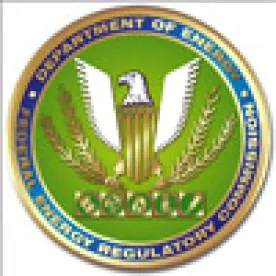On June 30, 2020, the U.S. Court of Appeals for the District of Columbia Circuit (DC Circuit), acting as an en banc panel, rejected Federal Energy Regulatory Commission’s (FERC) long-standing practice of issuing tolling orders, which indefinitely extend the agency’s time limit to respond to petitions for rehearing of its orders. The court’s opinion will disrupt routine operations at FERC, and will force FERC-regulated entities to rethink every aspect of FERC practice related to the rehearing process, including the process for seeking judicial review of FERC orders. For reasons we have previously discussed, the Court’s ruling may create new difficulties for infrastructure projects requiring FERC approval, and the Court’s broad ruling makes clear that these concerns extend to electricity infrastructure as well as natural gas pipelines.
The case turns on the rehearing provisions of the Natural Gas Act, which set forth a detailed process for parties seeking to challenge FERC orders. Before seeking review of a FERC order, a party must first file a petition seeking rehearing of the challenged order. The statute gives FERC 30 days to address the rehearing petition, and the petition is denied by operation of law if FERC does not address it. FERC has for decades issued “tolling orders,” which suspend the 30-day statutory deadline in order to allow FERC to fully address arguments raised on rehearing. But because FERC’s orders are considered final even if rehearing is filed, the law had long been that once FERC issues an order permitting pipeline construction under the Natural Gas Act, the sponsor of a natural gas pipeline is permitted to condemn private property in the approved pipeline right of way and begin construction. Landowners and others challenging the certificate, on the other hand, were barred from seeking remedies in court because, once rehearing was filed, the orders were considered non-final and therefore non-reviewable.
In a scathing opinion issued last year, Judge Patricia Millett labeled the result “Kafkaesque” because pipeline sponsors can proceed with condemnations once FERC approves a project, but property owners are “jurisdictionally locked . . . out of federal court” and therefore cannot challenge the validity of the order authorizing those condemnations. Judge Millet’s opinion prompted the DC Circuit to take the highly unusual step of reviewing FERC’s rehearing practices en banc before all eleven of the Court’s active judges.
Despite FERC’s adoption of new procedural rules aimed at easing this dilemma for landowners in pipeline rights of way, the en banc panel nonetheless decisively struck down FERC’s use of tolling orders, with only a single judge dissenting from that result. The majority opinion, authored by Judge Millett, concludes that tolling orders are incompatible with the plain language of the Natural Gas Act because the statute does not permit the agency to extend the thirty-day statutory deadline for acting on petitions for rehearing unless it acts substantively on the underlying order. The ruling also makes clear that it also applies to the Federal Power Act, the other major statute administered by FERC. Seven judges concurred in Judge Millett’s opinion and three more joined a concurrence adopting the same rationale.
The ruling creates a major disruption in business as usual at FERC. Although the full implications of the D.C. Circuit’s action might not become clear for months or years, the ruling will, at a minimum, greatly shorten the period during which FERC may act on rehearing. As the D.C. Circuit opinions point out, the statute permits the agency to change its orders up until the time the record in an appeal is filed with a reviewing court. Thus, FERC could potentially act on rehearing up until the record is filed, a period that generally will be no more than 70-100 days from the initial order. In contrast, under its current practice, FERC has no particular deadline to act on rehearing petitions and generally takes several months, and sometimes years, to issue orders on rehearing.
The ruling will also require entities challenging FERC orders to carefully evaluate their options and likely to file a petition for judicial review of challenged FERC orders after the thirty-day statutory period has elapsed, rather than waiting for FERC to take final action on rehearing. Finally, the ruling will place primacy on FERC’s initial orders, rather than on orders for rehearing, and therefore will force FERC to flesh out its rationales in initial orders rather than deferring detailed rationales until orders on rehearing, as it has often done until now.
The order will surely require FERC to develop new procedural norms for handling rehearing petitions, and may even spark Congressional action. The evolution of these procedural practices bear careful scrutiny from those industries subject to FERC regulation.




 />i
/>i

